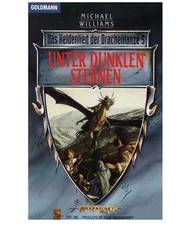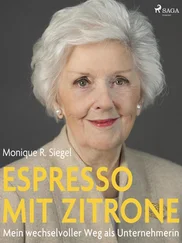“Daddy!” Anna, who normally liked to keep her childish enthusiasm under control, seemed unabashedly glad to see me. Only not as glad as I was to see her. She popped up off her stool in a flash and straight into my arms, where I clung to her as if my very life depended on it. And maybe it did.
I was about to ask her where her mother was, but just then she walked into the kitchen. I had no idea what to do — I felt as awkward as someone on a blind date. I wasn’t sure how to greet her, what to say to her, and it occurred to me that she was probably a little confused on the issue as well. We both hesitated, then settled on a perfunctory embrace with all the warmth of a postgame hockey handshake.
“How was California?” she asked me, evidently determined to see the charade through.
“Fine. Not done yet, either. I have to go back in the morning.”
This was evidently news to Anna. She immediately pouted and said: "Daddy . . .”
“Sorry, honey. There’s nothing I can do about it.” And here, at least, I was telling the truth.
“I wanted you to see me sing at the spring concert. I have a solo.”
“Well, don’t turn professional till after high school.”
The attempt at levity failed; Anna turned back to MTV, looking hurt and upset with me.
“Can somebody get me some juice?” she said. Her hands were suddenly shaking; she was holding the TV remote, and it was jiggling up and down.
“Are you low, honey?” Deanna said, quickly opening the refrigerator.
“No. I’m shaking because I like to.”
Deanna shot me a look: See what I’ve been going through, this look said. She's getting worse.
Deanna pulled out some orange juice and poured Anna half a glass. “There you go. . . .”
Anna took it and swallowed a little.
“I think you should drink a little more,” Deanna said.
“Oh, is that what you think?” Anna, ever vigilant against any suggestions concerning what she should or shouldn’t put into her own body. She was still shaking.
“Come on, sweetie,” I said.
“I’m fine,” Anna said.
“You’re not — ”
“All right!" Anna said, grabbing the glass and striding out of the room. “I wish both of you would get off of my back already.”
After she left the room, Deanna said: “She’s scared. She’s been going up and down like a roller coaster. When she gets scared she gets angry.”
“Yes,” I said. “I know.”
Why did you call me Anna? our daughter Anna used to ask when she was very small.
Because you’re part of me, Deanna would answer: De-Anna, see?
“I have to get back to the bills,” Deanna said. Which suddenly reminded me that we might soon be having a problem paying those bills. Deanna left the kitchen.
I still needed a birthday card. Since my daughter and wife were both mad at me, I decided it was a good time to go to the stationery store on Merrick Road and buy one.
When I walked into the store, an older woman was buying Lotto tickets at the counter.
“. . . eight . . . seventeen . . . thirty-three . . . six . . . ,” listlessly spitting out a seemingly endless litany of digits. “. . . nine . . . twenty-two . . . eleven . . .”
I walked to the back where the greeting cards were. Of course, there weren’t just greeting cards; there were anniversary cards, get well cards, condolence cards, Valentine’s Day cards, thank-you cards, graduation cards, and birthday cards. I planted myself in front of the birthday section, momentarily dazzled by all the subcategories: Happy Birthday, Mom, Son, Wife, Mom-in-law, Grandmother, Best Friend, Cousin. And Daughter—it was there somewhere. Of course, once I found the category, I had to decide on the tone. Funny? Respectful? Sentimental? I was inclined to go sentimental here, since that’s how I felt these days. There were a lot of sentimental cards, too, most of them with flowers on the cover and little poems on the inside. Only the poems weren’t sentimental as much as trite—the roses are red, violets are blue genre of poem writing.
For instance:
To my daughter on her birthday
I have this to say
I love you very much
Your smile, your spirit and such
Even though we may be apart
You have your daddy’s heart.
The end.
I was worried Anna might throw up if I brought that one home for her. On the other hand, if I wanted to be sentimental and halfway intelligent, the pickings were slim. There were cards with nothing on the inside, for instance, allowing you to be as intelligent or sentimental as you’d like. These cards tended to have moody black-and-white photographs on the cover — of a snowfield in Maine, say, or a lonely mountain stream. They basically said stupid poems are for the unenlightened masses — these are for the more soulful of you. I couldn’t decide if I was up to soulfulness today, though. So what was it to be?
Just past the card racks there were more elaborate gifts. Ceramic hearts saying “World’s Best Mom.” A golf ball “Fore a Great Dad.” Fake flowers. A bell that said “Ring A Ding Ding.” And some picture frames.
I didn’t notice it immediately.
I looked here and there, sifted through the ceramic and cheap plastic, picked up the golf ball, gently rang the bell. I even turned back to the card rack, intent on finally making a decision. Only I had what you might call an episode of peripheral vision—you might, except it wouldn’t be strictly true. It wasn’t that I saw anything out of the corner of my eye, just that I remembered seeing it.
The bell, yes. And the silly golf ball. And the ceramic hearts. Keep going. There.
It was in the second picture frame.
And the third one, too.
And three miniature ones set behind it. And the large frame decorated with a metal trellis of flowers.
“Can I help you with anything?” The voice seemed to be coming from far away.
The picture in the picture frames.
They put them there to show you how nice they’ll look once you get them home and put your pictures inside them. You and your wife at that wedding in Nantucket. The twins as Hansel and Gretel from a long-ago Halloween. Curry, the sweet-faced pup. Because people lack the necessary imagination otherwise. They need surrogate faces in there so they’ll know what to expect when it’s sitting back home on the mantelplace.
“Can I help you with anything, sir?” The voice more insistent now — but it was as if it were speaking through glass.
Behind the glass of the picture frames was the picture of a little girl. She was on a swing somewhere in the country, with her tawny blond hair caught in midswirl. Freckle faced and knobby kneed and sweet smiled. The very model of carefree youth. Because she was a model. Behind the swing were makeup artists and hairstylists and wardrobe people — only you couldn’t see them.
“Sir, are you all right?”
I’d seen this picture before.
I showed you mine, now you show me yours.
Remember?
She’d seen Anna peeking out from the inside of my wallet, so I’d asked to see hers.
I showed you mine, now you show me yours.
And she’d laughed. I’d made lovely Lucinda laugh out loud, and she’d reached into her leather bag and shown me.
The little girl on the swing. Out in the country somewhere.
She’s adorable. That's what I’d said.
And she’d said thanks. I forget sometimes. Two parents complimenting each other on their respective progeny, commuter small talk, nothing to it.
Nothing at all.
I forget sometimes. Because maybe that was an easy thing to do, to forget something that you didn’t actually have.
Читать дальше












